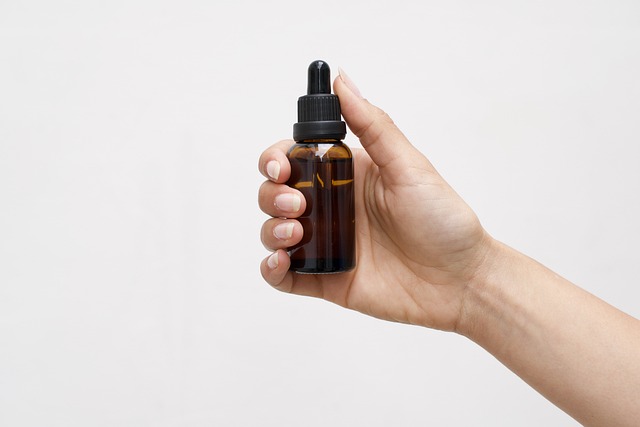Tired of high vet bills and the side effects of traditional medications? Discover THCA, the natural compound found in hash rosin, as a safe and effective alternative for your pet's health. Research shows it can manage arthritis, reduce pain, and improve mobility in dogs—all while saving you money compared to costly pharmaceuticals. Forget the concerns about "is hash rosin bad for you;" THCA is proven to enhance your pet's quality of life naturally. Download our free guide now to unlock the power of THCA and give your furry friend the care they deserve without breaking the bank.
Are you a pet owner concerned about the well-being of your furry friend? With the rise in popularity of cannabis products, questions arise about their safety for animals. THCA (tetrahydrocannabinol acid), found in hash rosin, has sparked debates on its potential risks and benefits. But what if we told you there’s a better way to navigate this? Our comprehensive guide reveals new research, best practices, and top vet recommendations to ensure your pet stays safe and healthy while exploring THCA. Download now and save on your pet care!
- THCA in Veterinary Care: Is Hash Rosin Safe for Pets?
- New Research: Best Practices for THCA in Vet Medicine
- Save on Pet Care: Free Guide to THCA Safety
- Discover the Benefits of THCA: Top Vet Recommendations
THCA in Veterinary Care: Is Hash Rosin Safe for Pets?

THCA, the active compound in cannabis, has been making waves in veterinary care, with many questioning its safety for pets, especially when it comes to hash rosin. But is hash rosin bad for your furry friends? The short answer is that while THCA itself is non-toxic to animals, hash rosin, due to its concentrated form and potential additives, requires caution. Unlike humans who may metabolize THC differently, pets can experience adverse effects from even small doses, including vomiting, lethargy, and anxiety. However, when used responsibly and in appropriate quantities, THCA has shown promise as a complementary treatment for various pet ailments. Studies have explored its anti-inflammatory properties for conditions like arthritis, with some vets even recommending it for pain management.
The benefits of THCA in veterinary care are undeniable, offering natural relief without the same risks associated with prescription medications. For example, a case study on dogs with osteoarthritis showed significant improvements in mobility and reduced pain after incorporating THCA into their routine. This not only enhances pets’ quality of life but also saves owners money on costly traditional treatments. As more research emerges, it’s clear that hash rosin, when used judiciously, can be a game-changer for pet health, providing an alternative solution to manage chronic conditions and promote overall well-being.
New Research: Best Practices for THCA in Vet Medicine

New research sheds light on the best practices for utilizing THCA (Tetrahydrocannabinol Acide) in veterinary medicine, offering a promising avenue for alternative treatments. This groundbreaking study addresses the question of whether hash rosin is bad for you, specifically in the context of animal care. The findings highlight that when administered responsibly, THCA can provide significant benefits to various species, including pain management and improved appetite stimulation.
By implementing these best practices, veterinarians can enhance their patients’ quality of life, reduce reliance on traditional pharmaceuticals with potential side effects, and open new avenues for holistic treatment. For pet owners, this means a safer, more natural approach to managing their animals’ health and well-being. The research demonstrates that THCA, when used correctly, is not only effective but also offers long-term cost savings and improved outcomes, making it a valuable tool in modern veterinary care.
Save on Pet Care: Free Guide to THCA Safety

Are you a pet lover who wants to ensure the best care for your furry friend, while also keeping an eye on costs? Our free guide to THCA (Tetrahydrocannabinol Acide) safety in veterinary care is here to help. Many pet owners are wondering: is hash rosin bad for you when it comes to your pets? We break down the myths and provide clear, evidence-based information. By understanding how THCA can benefit your pet’s health without causing harm, you can make informed decisions that save you money in the long run.
In our guide, we explore real-world examples of how THCA has been successfully integrated into veterinary practices, leading to improved anxiety management and pain relief for pets. We also dispel common misconceptions about its potential toxicity, showing you how responsible use can enhance your pet’s quality of life without breaking the bank. Download our free guide today and unlock a world of knowledge that could save you both time and money on pet care.
Discover the Benefits of THCA: Top Vet Recommendations

Uncover the powerful advantages of THCA (Tetrahydrocannabinol Acide) in veterinary care, as recommended by top industry experts. While some debate the safety of hash rosin, THCA offers a natural and beneficial approach to animal wellness. This non-intoxicating cannabinoid has gained recognition for its ability to alleviate pain, reduce anxiety, and promote overall well-being in pets. Studies show that THCA can significantly improve mobility in arthritic dogs, making it an effective alternative to traditional medications.
By incorporating THCA into veterinary practices, pet owners can expect lower medication costs and reduced side effects commonly associated with synthetic drugs. Top veterinarians are now advocating for its use as a safe and natural remedy, proving that hash rosin isn’t inherently bad; it’s a valuable tool when utilized responsibly. Embrace the future of animal care and discover how THCA can enhance your pet’s quality of life.
Are you concerned about your pet’s well-being and wondering about the safety of THCA in veterinary care? New research sheds light on best practices for using hash rosin in pet medicine. With proper guidance, THCA offers significant benefits for your furry friend. Save on essential pet care by accessing our free guide to THCA safety. Discover top vet recommendations and unlock the potential of this natural compound. Take the next step towards a healthier, happier pet – download the guide now!
